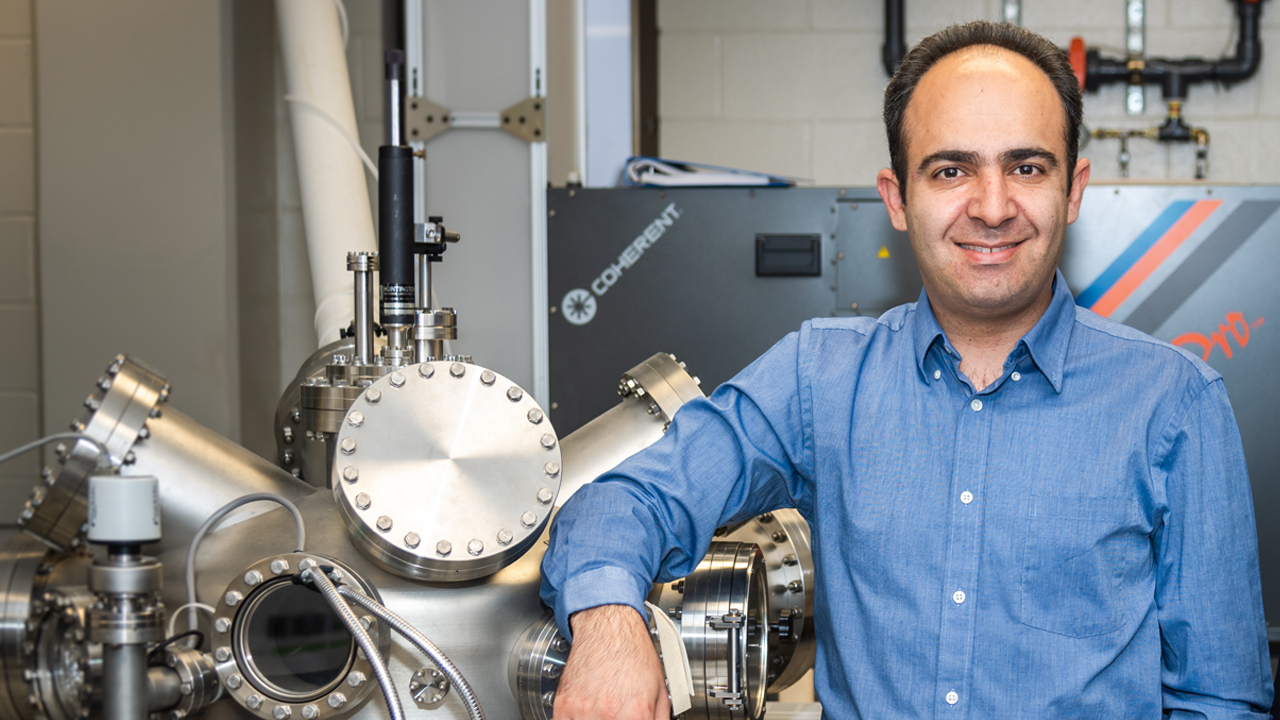Associate professor in ECE creates advanced technology capable of manufacturing tools in space
Published: Jan 9, 2024 7:25 AM
By Joe McAdory
Spacely Space Sprockets of futuristic 1960s cartoon sitcom “The Jetsons” manufactured a variety of gadgets for use in gravity-challenged Orbit City. Dr. Masoud Mahjouri-Samani, Godbold Associate Professor in electrical and computer engineering, believes he can do the same for real — not with large, impossible-to-create manufacturing plants, but with additive micro and nanomanufacturing machines small enough to be carried inside a spaceship to the surface of the moon, or beyond.
Imagine advanced technology capable of manufacturing critical parts and electronics on planetary surfaces using in-situ (on-site/native) resources, the ability to produce on-demand fabrication and repair of critical systems, parts, tools, sensors or even electronic pieces necessary for space travel and survival.
Why is this important? Future Artemis missions plan to carry astronauts to the moon – which will eventually serve as a stepping-stone for missions to Mars.
“Space exploration and long-term missions come with the need for in-space manufacturing and construction capabilities to be independent of the expensive and time-consuming earth supply chain logistics,” said Mahjouri-Samani, whose research interest is prioritized on the laser-based synthesis, laser processing and in-situ laser diagnostics of emerging materials and devices. “Such capabilities are required to develop sustainable space architectures, repair or replace parts and create components from in-situ resources.”
As director of the Laser-Assisted Science and Engineering Emerging Nanomaterials and Devices (LASE-END) lab and founder of NanoPrintek, Inc., Mahjouri-Samani’s focus has been on three areas: 1) in-space manufacturing of electronics and semiconductor devices, 2) in-space manufacturing of parts, and 3) in-space construction of structures using local resources.
NanoPrintek is taking a revolutionary approach to additive manufacturing. It captures the benefits of an all-encompassing, laser-based, dry additive nanomanufacturing system design and enables the printing of electronics and other critical materials and products virtually anywhere, including in space.
“Our system is based on a fascinating technology that integrates all of the features, functionality and performance benefits of additive-for-electronics into a single, compact machine,” Mahjouri-Samani said. “The beauty of this system is that it can generate the nanoparticles required to manufacture electronic circuitry and other challenging devices from any solid material placed inside the machine – on demand and in real-time.”
Mahjouri-Samani’s device can generate its own sources of printing particles from any solid targets, in-situ and on-demand, without the need to carry powders or ink into space. It also enables the potential use of in-situ resources such as space junk and scraps for printing parts. With collaboration with NASA, the technology has been undergoing successful tests on Earth that will be extended to microgravity.
“These space manufacturing capabilities are often developed by leveraging disruptive terrestrial technologies and adapting them for operations in the space environment,” Mahjouri-Samani said.
Beyond electronics and functional devices, Mahjouri-Samani recently demonstrated the 3D printing of a hockey puck from lunar regolith simulants (moon dirt) to construct lunar habitat potentiality. This was done by laser sintering the moon dirt in a home-built additive manufacturing system. The 3D printing of structures from dirt potentially eliminates the need for water and binders.
“These efforts are critical not only for space exploration but also it provides technological advancement for the future commercialization of space,” he added. “Our goal is to take a significant part in the future of space manufacturing, and we believe our technology will be one of the most promising candidates to be headed to the moon and beyond,” Mahjouri-Samani said.
Media Contact: , jem0040@auburn.edu, 334.844.3447
Masoud Mahjouri-Samani is founder of NanoPrintek.


